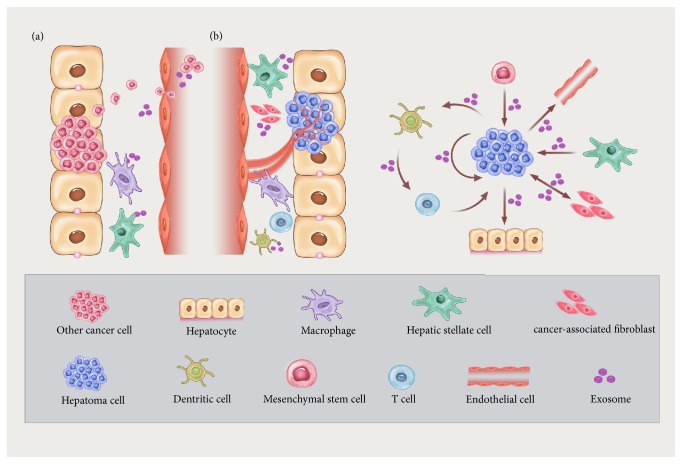Figure 1.
Exosomes exert regulatory effect on microenvironment by mediating the interaction of hepatic carcinoma cells and different types of liver cells. (a) Exosomes derived from tumors (e.g., gastric cancer, pancreatic ductal adenocarcinoma, breast cancer, and colorectal cancer) stimulate the macrophages (Kupffer cells) and hepatic stellate cells (HSCs) to facilitate a premetastatic niche in the liver. (b) Exosomes mediate the interplay between hepatocellular carcinoma (HCC) cells and different types of liver cells, including endothelial cells (EC), cancer-associated fibroblasts (CAFs), HSCs, mesenchymal stem cells (MSCs), and dendritic cells (DCs). In detail, HCC cells promote the EC-based vascularization, HSC activation, and hepatocyte malignization by exosomes. Exosomes from MSCs, HSCs, and CAFs inhibit the malignant phenotypes of HCC cells. Moreover, DCs stimulated by HCC cells-derived exosomes are involved in the T cell infiltration and activation in HCC.

